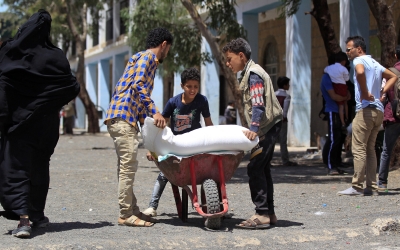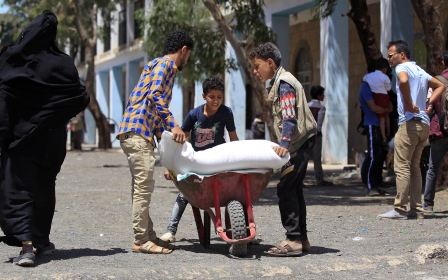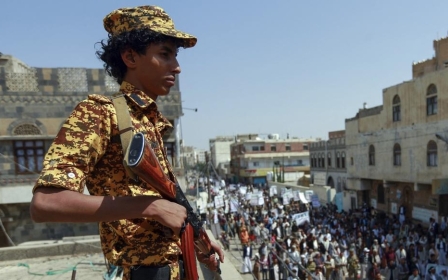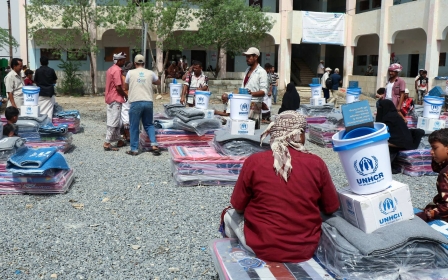Yemenis face 'death sentence' if United Nations funding gaps not filled
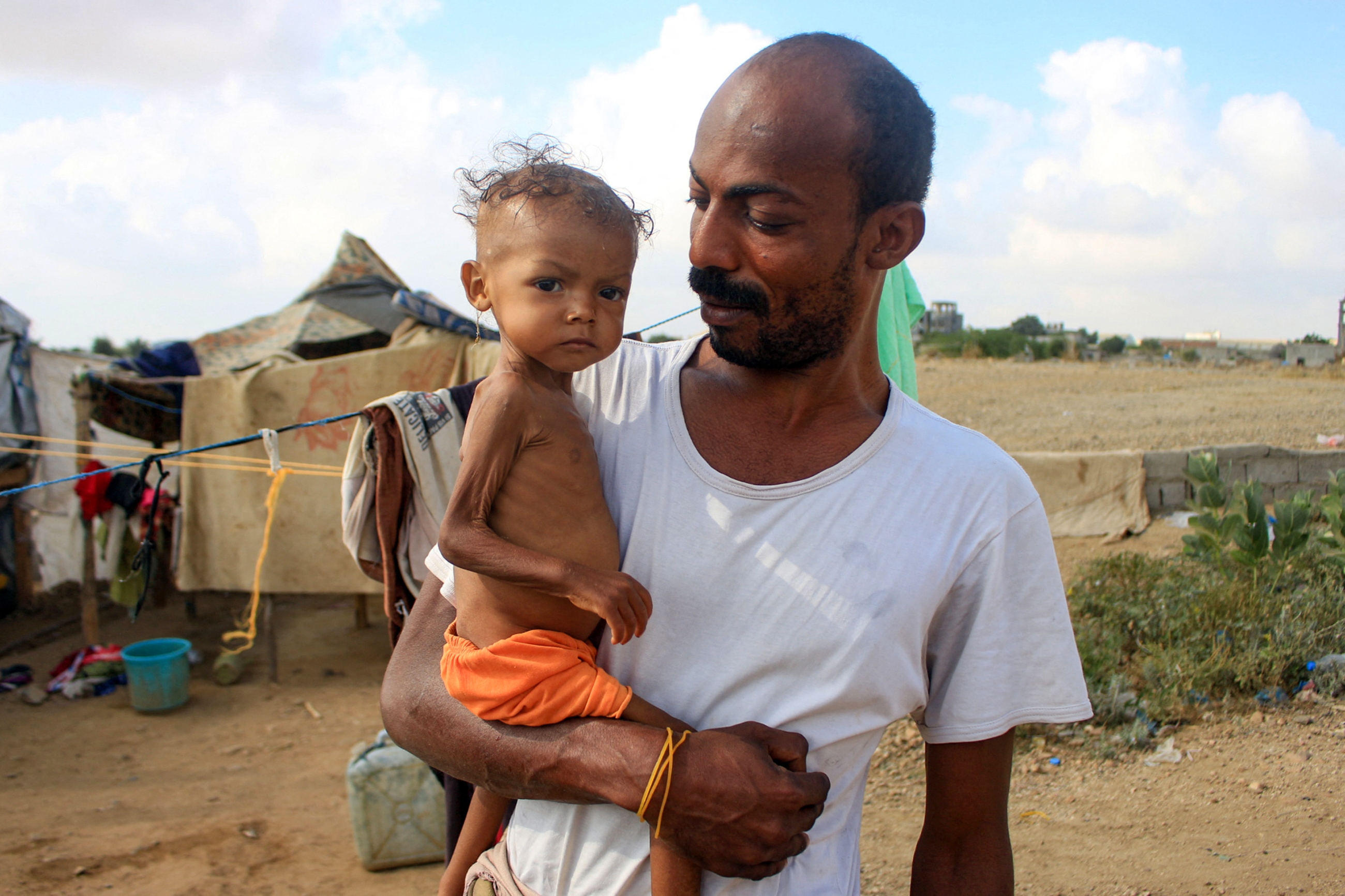
The United Nations has been warned that millions of Yemenis face a “death sentence” if gaps in the UN’s funding for humanitarian aid are not filled.
UN humanitarian chief Martin Griffiths told the United Nations Security Council on Tuesday that, as of the end of January, nearly two-thirds of major UN aid programmes had already been scaled back or closed because of funding shortages.
'We have never before contemplated giving millions of hungry people no food at all'
- Martin Griffiths, UN humanitarian chief
He warned that Yemenis will face further cuts in humanitarian aid in the coming months, with eight million people who are currently receiving food rations now at risk of getting no food at all.
“The humanitarian operation... is about to start doing a lot less,” Griffiths said. “Aid agencies are quickly running out of money, forcing them to slash life-saving programmes.”
Griffiths, who previously served as the UN’s special envoy for Yemen, described the current gaps in funding as “unprecedented in Yemen”.
New MEE newsletter: Jerusalem Dispatch
Sign up to get the latest insights and analysis on Israel-Palestine, alongside Turkey Unpacked and other MEE newsletters
He told the Security Council: “We have never before contemplated giving millions of hungry people no food at all. If these gaps aren’t addressed, it will simply be a death sentence for people whose coping mechanisms in some cases are completely exhausted and who rely on assistance for their survival.”
Rations could be stopped completely
Since January, the World Food Programme has reduced rations for eight million of the 13 million people it feeds each month, and Griffiths said rations may be cut further from March, or stopped.
The reduction in food rations comes with millions of people in Yemen facing starvation, as the war sees its sharpest escalation in years. In January, 650 civilian casualties were recorded in Yemen, the highest toll in at least three years.
Griffiths said that in March, the UN might also have to cancel most of its humanitarian flights in Yemen, which would “cause enormous problems for the aid operation and for the movement of our staff. Looming disruptions to water and sanitation services - again, for want of funds - could soon deprive 3.6 million people of safe drinking water.”
'There is, it seems, no money'
Sitting beside the UN’s special envoy for Yemen, Swedish diplomat Hans Grundberg, Griffiths repeatedly referenced an unprecedented lack of funding. “There is, it seems, no money,” he said.
United Nations data shows that the UN’s 2021 Humanitarian Response Plan received only 58 percent of its requested funds from donors. Competing demands on donors and concerns about aid obstruction in Yemen have contributed to the shortfall, Reuters reported, although some donors did step up funds in the middle of 2021, when warnings of famine escalated.
The war in Yemen between the Iran-aligned Houthi group and a coalition led by Saudi Arabia has been going on for nearly seven years. Yemen has been devastated, with 80 percent of the country’s population reliant on help.
Efforts to broker a ceasefire have faltered of late, as a series of strikes and counter-strikes have left the various sides increasingly at odds.
Reuters reported that the Houthis want the lifting of a coalition blockade on areas the group holds ahead of any truce talks, whereas the Saudis want a simultaneous deal.
Grundberg told the Security Council he was beginning a series of “structured bilateral consultations”, including engagement with the warring parties, next week.
“Trust is low, and ending this war will require uncomfortable compromises which no warring party is currently willing to make,” he said.
“Allowing the war to continue is a choice, and so is ending it. We all know that ending it will not be easy, but I firmly believe it is possible.”
Middle East Eye delivers independent and unrivalled coverage and analysis of the Middle East, North Africa and beyond. To learn more about republishing this content and the associated fees, please fill out this form. More about MEE can be found here.


